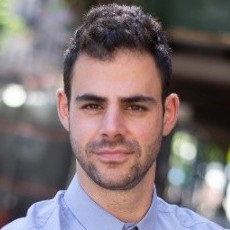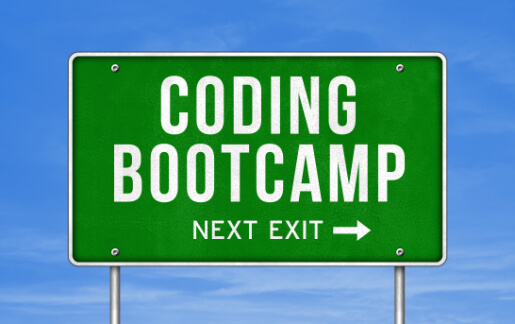Landing Your First Software Engineer Job After a Career Switch
Will was an isotope chemist pursuing his PhD when he dropped out of the program right before his 27th birthday to become a bartender. He didn’t have the drive for long term academia and didn’t feel like his research was valuable. Almost a year down the line, thanks to the advice he got from a friend who was an engineer and several other people in the engineering industry, he joined a Coding Bootcamp where he graduated as a Full Stack developer 4 months later.
Will has interviewed numerous software engineer candidates and was kind enough to share his experience from being on both sides of the recruiting table.

What was the catalyst that pushed you to switch career paths and choose software engineering?
Will had completed two thirds of his PhD program when he had to accept the harsh reality that his heart wasn’t in it anymore. “I was realizing that I didn't love the process enough and I didn't have enough faith that my research was valuable. But that's the only job I'd ever done.”
Bartending was fun for him at the beginning because he got to socialize and was no longer cooped up in a lab. The excitement only lasted 6 months. Bartending began to feel repetitive and uninspiring. He was stuck because he didn’t feel like he had any real skills.
Discovering Coding as a Career Option
He was very vocal about searching for a different career path and luckily for him, he had an engineering friend who showed him what he did. “He gave me a 20 minute JavaScript crash course and it was a little fun. Then I kept bartending. I kept getting sicker of that and I started doing some coder bite problems in the morning before going to my shift.”
Eventually, he decided that a software engineer career switch was the right next step for him. After spending years in school, Will couldn’t stomach the idea of doing another course where he would spend a lot of time in class. He was elated to find out that there were coding bootcamps that only took three months.
The Advantages of Coding Bootcamps
For someone that’s accustomed to the school of thought that higher learning entails studying for 2 or 4 years to get a good job may be a bit skeptical about doing a coding bootcamp within 3 months and the possibility of securing a job that pays a 3 figure salary thereafter.

A few of the advantages of coding bootcamps are:
- It’s a short course – You can cover the course within 3 months.
- You’re taught by successful engineering professionals.
- There are 3 types of flexible schedules:
(i) Full time – 12 weeks
(ii) Part time – 20 weeks; 2 days per week.
(iii) Part time nights – 24 week program; nights and Saturdays.
- You can earn a 3 figure salary after graduating.
- Multiple payment options – You can pay for the course in installments after you get a job.
Getting Hired During your First Coding Bootcamp Interview
Hiring Day is one of the best ways to get a job straight out of bootcamp. If possible, find out which companies will be present during the hiring day and prioritize who you want to approach and thoroughly prepare for your presentations/interviews.
Recruiting after a coding bootcamp can be one of the most stressful things. Will recommends to share your project, be thoroughly prepared to present and highlight the different skills you have built.
At Sabio, fellows work on a real project for an entrepreneur which lends them real experience when speaking to companies. Sharing an insightful summary about the product they built gives candidates the differentiating edge in the interview process.
How to explain your career switch during a coding interview
Having to explain a gap or a career switch to interviewers makes a lot of people nervous. Spin your resume to highlight details from your previous profession which are still applicable in your present career. Will had spent 7 years in his previous profession which indicates his discipline and commitment.
You also have to know how to brand your story in an interview.
For Will, it was about showing his enthusiasm and love for his new career. During interviews, Will painted a picture of how anxious he was to leave his previous vocation in exchange for a career that allowed him to produce impactful and tangible changes. “That's a story that would have people nodding along.”
Every candidate has unique drivers that push you to change careers, however everyone can positively highlight their past professional experiences . For example, if you loved your previous vocation, you can highlight how good you were at your previous job and now you are ready for a new challenge and an opportunity to grow as a professional.
Listen to our podcast:
https://soundcloud.com/wesabio
Contact us and find out more about our programs:
https://sabio.la/contact
Enroll:
https://sabio.la/apply
Posts you might like
- Embracing the Climb: A Leader's Growth Mindset Journey
- This is the Perfect Time to Dive into Coding and Automation, This is Why!
- Troubleshoot Like a Pro: The Art of Debugging in Programming
- Beyond Bootcamp: Diverse Career Avenues in Tech
- Spotting Burnout in Tech Job Hunts: 6 Warning Signs & Ways to Overcome It
- Get Hired: Essential Knowledge for Emerging Programmers
- 7 Steps to Build a Personalized Continuous Learning Plan for Coders
- Empower Your Journey: Benefits of Remote Code Bootcamps
- Proactive Steps: Daily Rituals for the Job-Hunting Programmer
- Don't Sabotage Your Tech Job Search: Mistakes to Skip
- Unleashing Opportunities: How Bootcamp Career Services Propel Success
- From Lines to Offers: How Your Coding Experience Shapes Market Value
- Optimizing Success: Your Attitude in Coding Bootcamps
- Roadmap to Success: Tech Job Hunt with a Coding Bootcamp Mentor
- Crafting Your Tech Startup Roadmap from Bootcamp Grad
- Tips for Creating a Resume That Gets Interviews for High-Experience Jobs After Coding Bootcamp
- Accelerate Your Career: Embrace Bootcamps for Real-World Programming Skills
- The Coding Craft: Essential Skills Learned at Bootcamps
- Bootcamp Bonds: Tapping into Networks for Tech Employment
- Coding Confidence Booster: The Benefits of Coding Mock Interviews
- Programming by the Clock: The Impact of Effective Time Management
- Coding Freedom: The Value of Learning at Your Own Speed
- Calm Code Journey: Overwhelm-Free Bootcamp Success
- Polish Your Pitch: Tech Interview Communication Essentials
- Inside the Loop: Coding Bootcamps and Tech Industry Strategies
- From Zero to Hired: Decode the Experience Question in Tech Interviews
- Solving the Puzzle: Refining Your Problem-Solving as a Programmer
- The Art of Practicality: Using Coding Languages Without Overlearning
- Practice Makes Perfect: The Key to Software Engineering Brilliance
- The Power of Pause: Why Rest is Vital for Programmers



